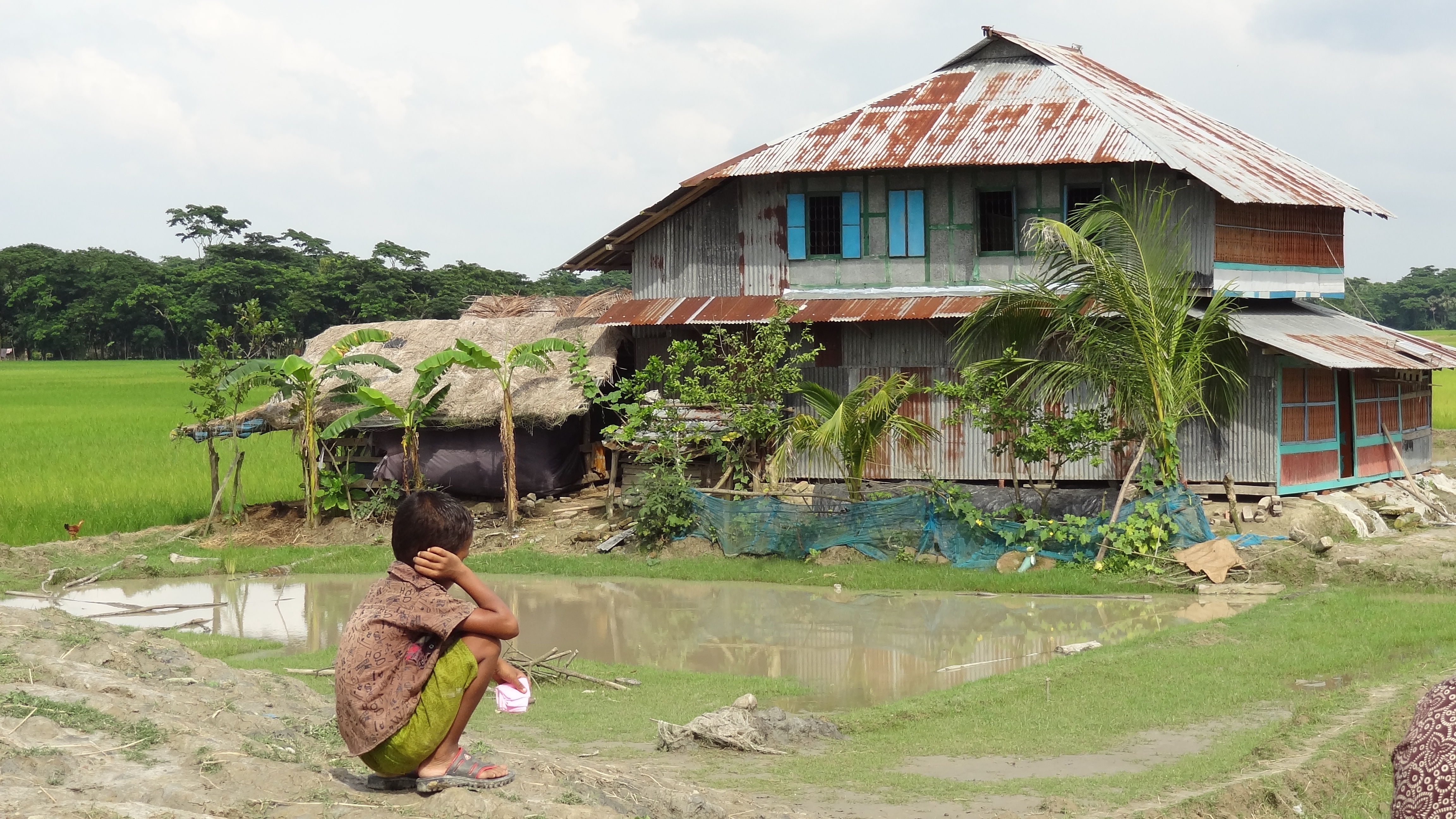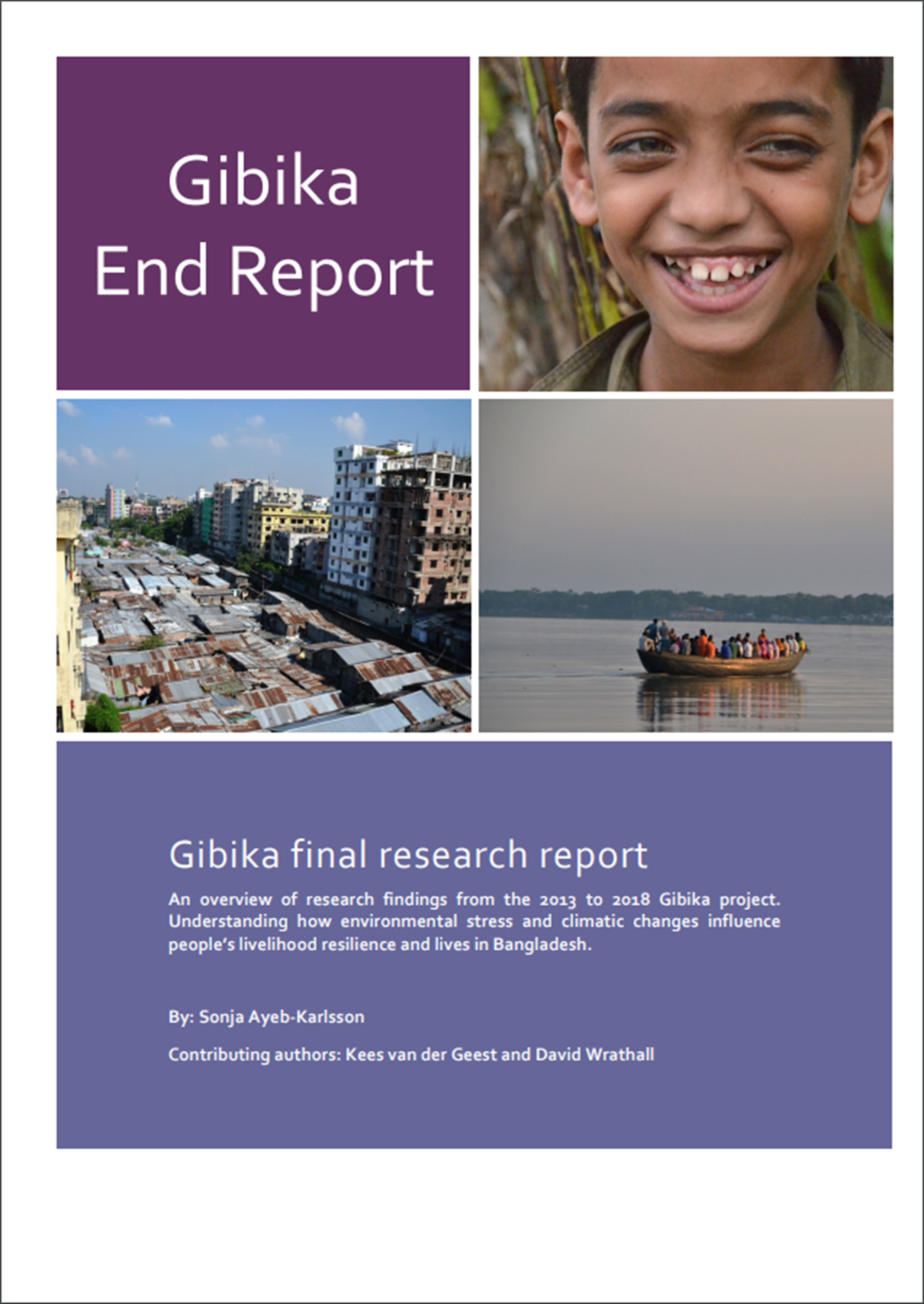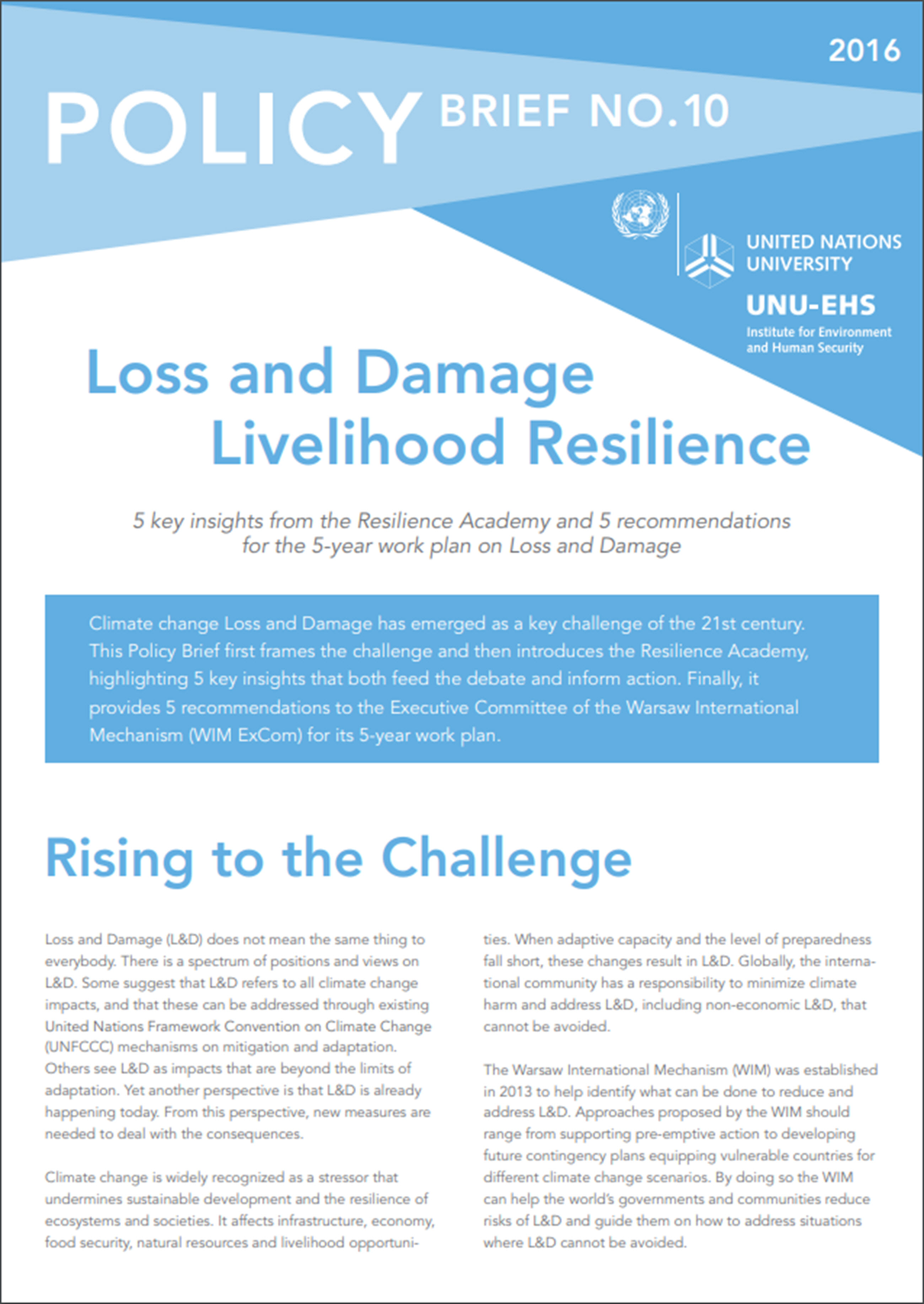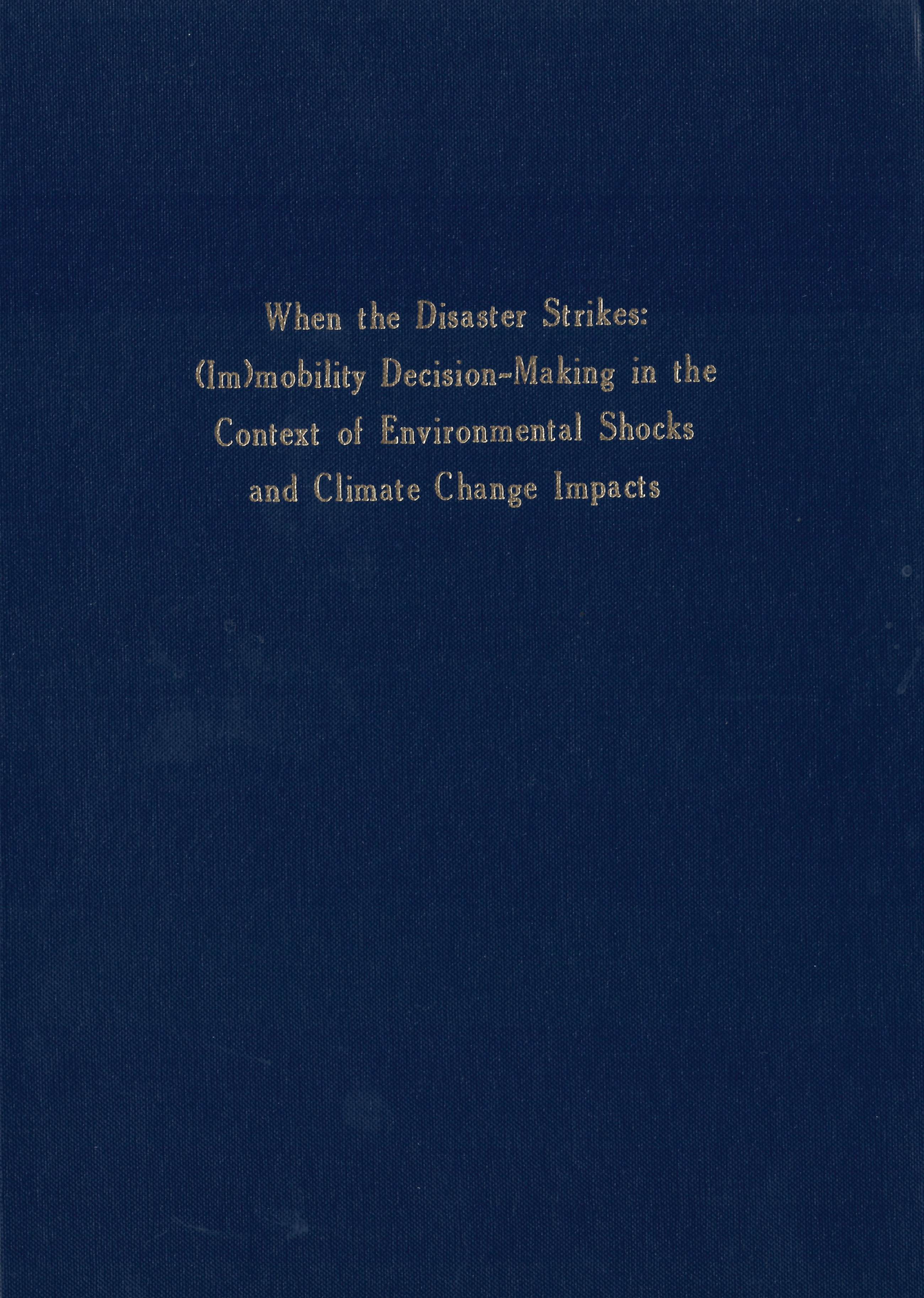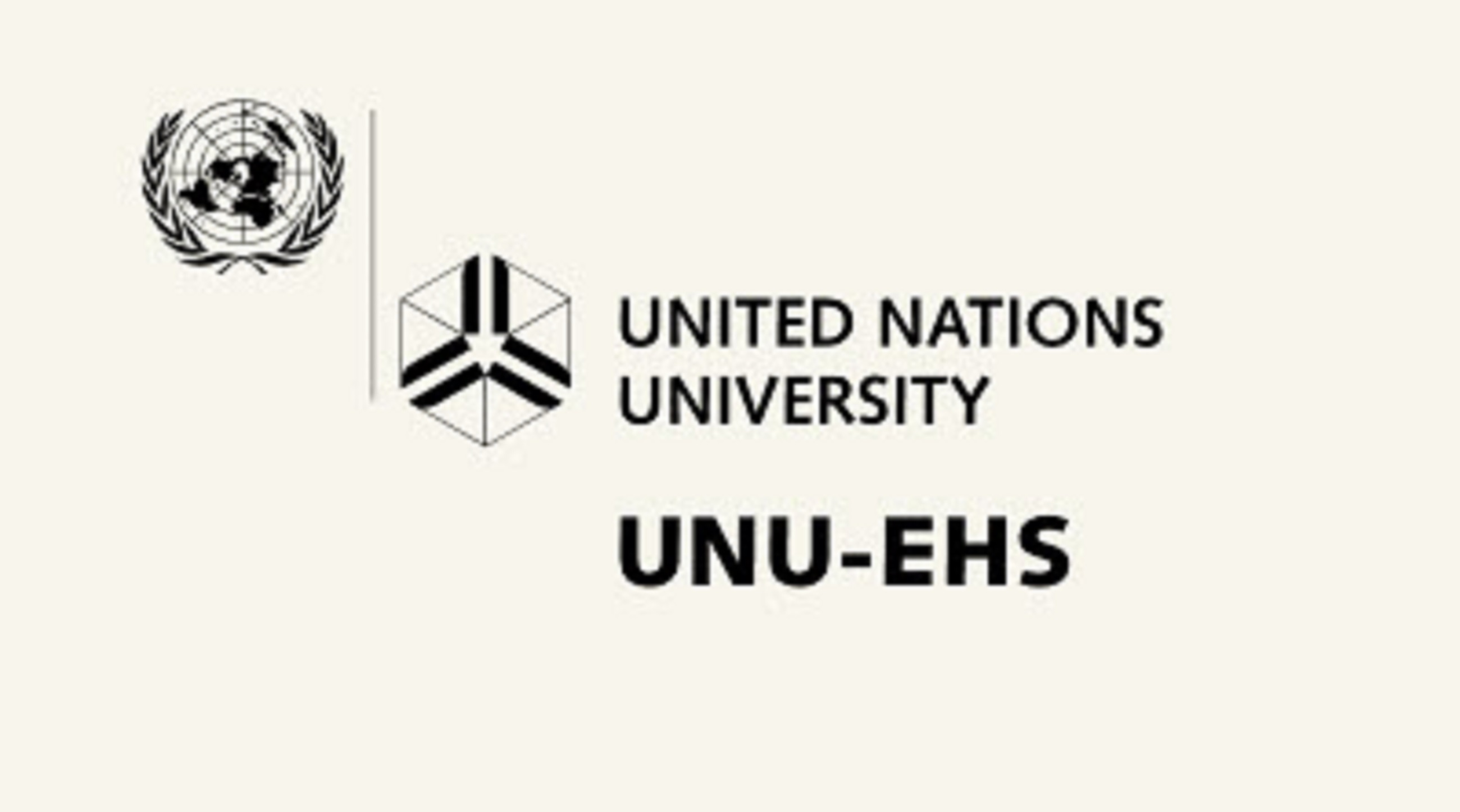
Gibika - Protecting livelihoods in Bangladesh (2012 - 2018)
A five-year “research to action” project about livelihoods and climate change effects is coming to an end
properties.trackTitle
properties.trackSubtitle
News
“Climate change is forcing us to work together”
Climate change is confronting countries with different challenges on various levels. Bangladesh is greatly affected by its impacts in many ways. Permeated by the Meghna, Ganges and Brahmaputra rivers, and Bangladesh being a coastal land, mean confrontation with the water element is obvious. The extraordinary amount of water in the country, due to the Himalayan river systems, is constantly being multiplied by rising sea levels.
The most dangerous times are during the monsoon seasons. This is when people and their livelihoods are really threatened. Risks inland are emerging mainly as floods and severe riverbank erosion takes place. Closer to the coast, people are exposed to cyclones, storm surges, coastal inundation, soil salinity and erosion. Another climate change related challenge occurred in the late 1990s in the form of recurrent strong droughts in the north-west of the country. At stake are families, all their belongings and land, and hence the people’s identities. Self-determined actions are very limited when homes have to be left.

In order to understand the effects that environmental changes have on humanity, the world has to move together. There is great need for cooperation between countries, especially support for those which are less developed as regards infrastructure, and so are highly vulnerable. Social scientists are focusing increasingly more on how to improve the capacity of those most at risk to adapting to changes. What can be done to enhance the livelihood resilience in areas most affected, and can we predict what to expect in the future? What are, besides environmental threats, the factors contributing towards precarious life circumstances and causing social vulnerability? What role is played by population growth and urbanisation? And, last but not least, which areas should be chosen to foster resilience? The answer to this question is challenging because financial resources are limited and choices have to be made.
The final report provided at the end of this abstract is one important outcome of our “Gibika Project”. It ran for five years from 2013 to 2018. Gibika means livelihood in the language of the Bangladeshis. Through research and transformational action, scientists at the United Nations University at the Institute for Environment and Human Security (UNU-EHS) in Bonn, the International Centre for Climate Change and Development (ICCCAD) in Dhaka, and the Munich Re Foundation (MRF) joined forces, together with community members on the study sites, to understand and reduce local vulnerability and increase livelihood resilience. ICCCAD is one of the leading research and capacity building organisations working on climate change and development in Bangladesh. UNU-EHS provided scientific knowledge including skills, and conducted a large number of field visits. MRF funded the project and contributed with sharing knowledge about implementing flood and cyclone warning systems. Workshops and emergency training on evacuations for example were held. This project shows the great potential which lies in global north-south cooperation and knowledge transfer.

The country was clustered by seven different sites, dealing with different climate related challenges. Figure 1 points out the different key risk situations of the seven sites. The questions of researchers were guided by findings and understanding the factors, and their interactions which force abrupt changes in livelihood systems within environmentally impacted areas. To accomplish this, it is necessary to understand people’s realities. Furthermore, it was of great interest to understand which actions and policies can create and support people’s livelihood resilience. The scientific knowledge generated should then empower people in their decision-making and in transforming their livelihoods – thus making them more adaptable to environmental stress factors. To be sustainable, the overarching goal was to influence national policy making. The solutions and guidelines developed in the context of Gibika only have a chance of enduring in future planning processes if integrated into political contexts.
The author of the final report, anthropologist Sonja Ayeb-Karlsson (UNU-EHS), opens up the perspective of the people of Bangladesh. In a remarkable assessment about people’s livelihoods at the seven study sites, she gives us insights into the reality of inhabitants. She emphasizes the need to improve people’s living conditions, expand their opportunities and improve access to resources, and most importantly to promote human development. She, together with UNU-EHS project leader Kees van der Gest, used study trajectories, expert interviews, story-telling and focus group discussions amongst other tools. By doing so, she could make the voices of the Bangladeshi people heard. She found out about livelihood shocks and came to understand the all-encompassing socio-environmental context and how subjective socio-psychological processes are related to it.

The study helped tremendously to understand how people prioritise decision-making. When you ask people what they need for a good and safe life, disaster protection is often not mentioned although the risk may be very high. So when a catastrophe does strike, the consequences are even more serious. People need to prepare. Unknown challenges arise, such as gender conflicts in provisional emergency accommodations. Furthermore, Sonja Ayeb-Karlsson stresses acknowledging the concept of trapped populations - referring to people who want to move but are unable to escape hazardous zones. The report also highlights a study which states that anthropogenic climate change is threatening to undermine the past 50 years of gains in public health.
Having been so close to the people of Bangladesh, Kees van der Geest, Sonja Ayeb-Karlsson, her colleague Istiakh Ahmed from ICCCAD and the rest of the research team see huge potential from the Gibika project to learn big lessons from the very diverse and difficult circumstances surrounding livelihood resilience. Health is one aspect which originally was not a focus of the Gibika endeavour but which definitely needs more attention. Good health conditions of local people are the prerequisites for any resilience building process. At the same time, environmental changes, loss of livelihood options as a result, and even the loss of homelands, have the potential to severely affect the health of people – physically and psychologically. The report not only provides answers to our original research questions, it also points out fields of research and action that are still needed in addition. This is no longer the challenge of one country. Climate change is forcing us to work together.
Core publications of Gibika
The Gibika photo-film series
The Gibika photo-film series:
Muzaffar - 'Hard work and a harvester machine' (2019)
Muzaffar’s story begins like so many others here: with a difficult past. Poverty forced Muzaffar to work as a child and he never had a chance to attend school. The day he got a family of his own, his main concern was putting food on the table. At the time, food in the area was scarce due to the lack of rain and, as the local climate became less stable, his village struggled increasingly with drought. It was difficult to make money in the village, so Muzaffar decided to leave his wife and eight children behind and migrated to the capital, Dhaka.
The Gibika photo-film series:
Sahia - 'We cannot afford honour' (2018)
Riverbank erosion usually happens slowly, but occasionally a larger chunk of land suddenly falls into the water. This is what happened the day Sahia lost her first house. As soon as she noticed how deep the cracks were in the ground, she started carrying out their belongings to safety. A few hours later, the house was gone.
The Gibika photo-film series:
Nurmia - 'If we had left earlier...' (2017)
Although the residents of Mazer Char were warned about the cyclone approaching, Nurmia did not evacuate, nor did many other islanders, who could not bear to leave their homes and belongings behind. People face complex and careful considerations in deciding whether to stay or to go during a cyclone. Some may want to evacuate but lack the financial means to do so, or feel constrained to simply abandon everything they own.
The Gibika photo-film series:
Bhokul - 'The day my soul ran away...' (2017)
A year after the historic Paris climate agreement was reached by 192 states, country representatives are back at the negotiating table to work out how to implement it. But the talks in Marrakesh will seem a world away for those who are already seeing the effects of environmental stress and climate change first-hand.


